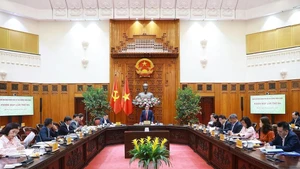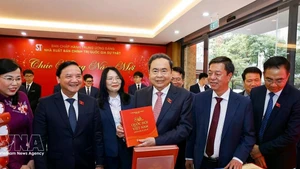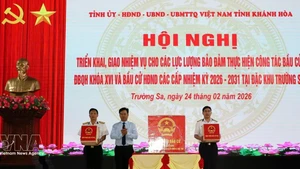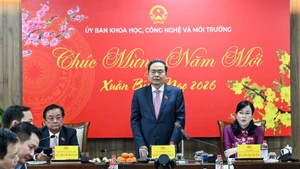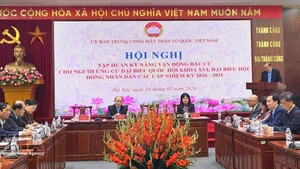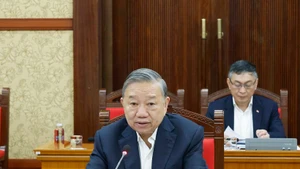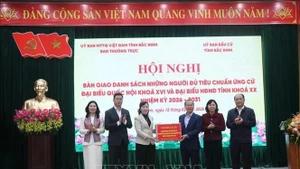He said the resolution sets an ambitious goal for strong growth of the sector. The goal is to generate two million operating enterprises by 2030, equivalent to 20 enterprises per 1,000 people, and at least 20 large businesses participating in global value chains. The sector is to record an average annual growth rate of 10 – 12%, contribute 55 – 58% of GDP, and generate employment for 84 – 85% of the total workforce. By 2045, the country strives to have at least three million enterprises contributing over 60% of GDP.
To achieve these targets, Tam noted, the resolution focuses on improving the investment and business environment, simplifying administrative procedures, minimising compliance costs, and strengthening support for enterprises.
Currently, Viet Nam has about 5.2 million household businesses, a huge potential source for enterprise development. If even a small portion of these households convert into registered enterprises, the target of two million companies is entirely achievable, the Deputy Minister said.
Therefore, Resolution 68 introduces a key policy direction. From 2026, the lump-sum (presumptive) tax regime will be abolished to promote transparency in household business activities and motivate them to transition into formal enterprises. Once converted, they will benefit from preferential access to credit, land, training, technology, and tax incentives.
According to Tam, to support this transition, the Ministry of Finance is focusing on two major solution groups: completing the legal and policy framework and implementing practical support measures.
The ministry is urgently studying amendments to the laws on tax administration and personal income tax, aiming to create a new, simplified, and transparent management model with easy declaration procedures and streamlined bookkeeping and invoicing systems, ensuring that household businesses are not overburdened during conversion. The ministry is also considering drafting an individual business law to narrow the gap in governance, accounting, and financial regimes between household businesses and enterprises.
In parallel, it is submitting to the Government a decree guiding the implementation of National Assembly Resolution No. 198/2025/QH15 on special mechanisms and policies to foster private economic sector development. The decree will include practical support such as free accounting software, short-term training courses, online business registration assistance, and reduced transition times.

To ensure effective implementation, the ministry is also upgrading its technical infrastructure to abolish the lump-sum tax scheme for household businesses on January 1, 2026.
Tam said the biggest obstacles facing the private sector today are access to resources, particularly capital, land, technology, and high-quality human resources.
Given this, the Ministry of Finance will prioritise tax and fiscal policy reforms to create incentives for SMEs and innovative businesses; operate the SME development fund more effectively, including studying improvements to models of off-budget state financial funds; and enhance access to land, he official said.


